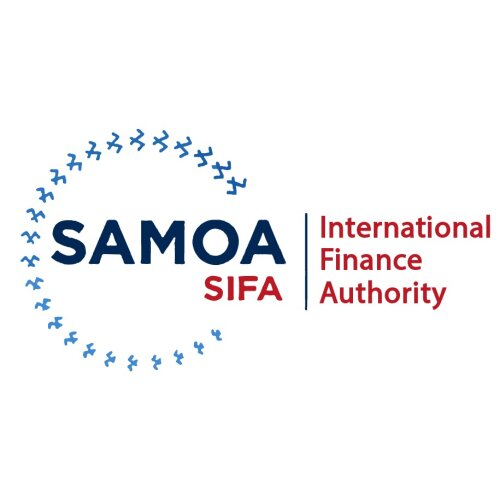Best Structured Finance Lawyers in Apia
Share your needs with us, get contacted by law firms.
Free. Takes 2 min.
List of the best lawyers in Apia, Samoa
About Structured Finance Law in Apia, Samoa
Structured Finance refers to a specialized area of financial law that involves complex transactions and the pooling of financial assets to create new securities. In Apia, Samoa, Structured Finance is becoming increasingly relevant as local businesses, financial institutions, and investors look for innovative ways to fund projects, access the capital markets, or manage risk. This field may encompass securitizations, asset-backed securities, syndicated loans, and more. Samoan law plays a key role in providing the legal framework for these multifaceted arrangements, ensuring that transactions are valid and enforceable.
Why You May Need a Lawyer
Structured Finance transactions can be intricate, involving multiple parties, jurisdictions, and legal considerations. You may need a lawyer for several reasons:
- To draft or review complex financial agreements and documents
- To ensure compliance with Samoan and international laws and regulations
- To negotiate terms between local and foreign entities or investors
- To structure investments or lending arrangements that minimize legal and financial risk
- To advise on taxation and regulatory requirements in Samoa
- To assist with dispute resolution or enforcement of financial contracts
Legal expertise is crucial to safeguard your interests and guide you through the regulatory environment in Apia, Samoa.
Local Laws Overview
Samoa has a robust legal structure for financial transactions, guided by various statutes and regulations. Key aspects relevant to Structured Finance include:
- Financial Institutions Act 1996 - Regulates the activities of banks and other financial institutions
- Companies Act 2001 - Governs the incorporation, structure, and operation of companies, which is relevant for forming special purpose vehicles commonly used in structured finance
- International Finance Centre (IFC) Regulations - Offers incentives for offshore finance and may impact cross-border transactions
- Property Law - Governs the use and assignment of assets that are often securitized
- Tax Laws - Influence the cost-effectiveness of structured transactions
Samoan law typically aligns with common law principles but includes unique features that impact how Structured Finance transactions are documented and enforced. Regulatory bodies such as the Central Bank of Samoa oversee financial markets, ensuring transaction transparency and stability.
Frequently Asked Questions
What is Structured Finance and how is it used in Samoa?
Structured Finance involves pooling assets and creating financial products for investment or financing purposes. In Samoa, it is commonly used for project financing, securitizations, and syndicated lending.
Do I need government approval for Structured Finance transactions in Apia?
Some transactions may require approval, especially those involving foreign entities, cross-border transfers, or banking activities regulated by the Central Bank of Samoa.
What types of assets can be securitized in Samoa?
Commonly securitized assets include mortgages, receivables, and other financial contracts. The asset must be legally assignable and have a predictable cash flow.
Are there restrictions on foreign involvement in Structured Finance deals?
Samoa welcomes foreign investment but may impose certain compliance checks and regulatory requirements, particularly under anti-money laundering and investment laws.
How are defaults handled in Structured Finance arrangements?
Default procedures depend on the contractual documents and applicable laws. Enforcement may involve the courts or alternative dispute resolution mechanisms.
What is the role of a Special Purpose Vehicle (SPV) in Structured Finance?
An SPV is a separate legal entity used to isolate financial risk in complex transactions. In Samoa, SPVs are often used to shield parent companies from liabilities arising from structured deals.
Are Structured Finance transactions in Samoa subject to local taxation?
Yes, applicable taxes may include stamp duty, income tax, and withholding tax, depending on the nature of the transaction and the parties involved.
Can individuals participate in Structured Finance transactions, or are they limited to institutions?
While Structured Finance is primarily used by corporations and financial institutions, individuals may participate directly or indirectly, depending on the product and regulatory requirements.
How can I ensure my Structured Finance agreement is legally enforceable in Samoa?
Work with a qualified lawyer to draft or review all documentation. Ensuring compliance with all applicable laws and correct execution of the agreements is essential.
Which government body oversees Structured Finance in Apia?
The Central Bank of Samoa regulates most financial transactions, while the Ministry of Commerce, Industry and Labour plays a role in company and securities regulation.
Additional Resources
If you are seeking more information or assistance, consider reaching out to the following resources:
- Central Bank of Samoa - The main regulator for financial institutions and markets
- Ministry of Commerce, Industry and Labour (MCIL) - Manages company registration and business oversight
- Samoa International Finance Authority (SIFA) - Oversees offshore and international finance activities
- Samoa Law Society - Directory of qualified legal practitioners specializing in finance
These organizations can provide guidance or direct you to professionals experienced in Structured Finance matters.
Next Steps
If you require legal assistance regarding Structured Finance in Apia, Samoa, start by clearly identifying your goals and the nature of your intended transaction. Collect all relevant documentation and facts. Contact a reputable law firm or a specialist lawyer with experience in finance law in Samoa. Consider arranging an initial consultation to discuss the specific details of your case or transaction, so the lawyer can provide tailored advice about compliance, structuring, negotiation, and risk mitigation. Remaining proactive and informed will help you navigate the complexity of Structured Finance and achieve favorable legal and commercial outcomes.
Lawzana helps you find the best lawyers and law firms in Apia through a curated and pre-screened list of qualified legal professionals. Our platform offers rankings and detailed profiles of attorneys and law firms, allowing you to compare based on practice areas, including Structured Finance, experience, and client feedback.
Each profile includes a description of the firm's areas of practice, client reviews, team members and partners, year of establishment, spoken languages, office locations, contact information, social media presence, and any published articles or resources. Most firms on our platform speak English and are experienced in both local and international legal matters.
Get a quote from top-rated law firms in Apia, Samoa — quickly, securely, and without unnecessary hassle.
Disclaimer:
The information provided on this page is for general informational purposes only and does not constitute legal advice. While we strive to ensure the accuracy and relevance of the content, legal information may change over time, and interpretations of the law can vary. You should always consult with a qualified legal professional for advice specific to your situation.
We disclaim all liability for actions taken or not taken based on the content of this page. If you believe any information is incorrect or outdated, please contact us, and we will review and update it where appropriate.












